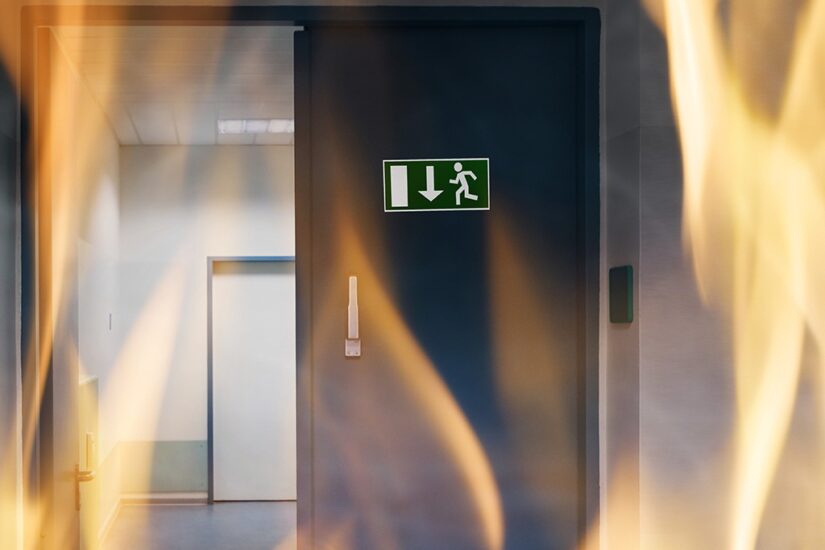Fire doors are one of the most critical components of any building’s fire safety strategy — yet they’re often overlooked until it’s too late. While skipping routine fire door maintenance might seem like a way to save time and money, the reality is the opposite. The hidden costs — financial, legal, and reputational — can be significant.
In this article, we’ll break down the true price of neglect and explain why regular fire door maintenance is essential for safety and compliance.
Legal Penalties and Fines
Under the Regulatory Reform (Fire Safety) Order 2005 and the Fire Safety (England) Regulations 2022, building owners, landlords, and duty holders are legally responsible for ensuring that fire doors are properly maintained.
Failing to do so can lead to:
- Fines of up to £5,000 per offence for minor breaches
- Unlimited fines and possible imprisonment for serious breaches
- Enforcement notices and potential building closure
Increased Risk to Life and Property
Fire doors are designed to slow the spread of flames and smoke, providing critical time for occupants to evacuate safely. Neglecting regular fire door maintenance can compromise their effectiveness, dramatically increasing the risk to life and property.
A tragic real-world example is the Lakanal House fire in London (2009). In this devastating incident, six people lost their lives after a fire rapidly spread through the tower block. Investigations revealed that fire doors failed to contain flames and smoke properly, due to substandard renovations and inadequate maintenance. This failure in fire-resistant compartmentation turned what might have been a containable fire into a lethal emergency.
Failing fire doors can lead to:
- Faster fire and smoke spread throughout a building
- Reduced evacuation time, putting occupants’ lives at risk
- Greater property damage and higher restoration costs
This example highlights that neglecting fire door maintenance is not just a regulatory issue—it can be a matter of life and death.
Insurance Complications
Most commercial and residential insurance policies require you to comply with fire safety regulations. If an investigation finds that you neglected fire door maintenance, insurers can:
- Reduce payouts
- Refuse claims altogether
- Increase future premiums
The financial exposure can be devastating, especially for landlords and facilities managers responsible for multiple properties.
Damage to Reputation
For businesses, property managers, and housing associations, reputational damage can often outweigh financial costs.
- Negative press coverage after fire safety breaches
- Loss of tenant or client trust
- Difficulty securing future contracts or tenants
In the digital age, non-compliance is quickly exposed — and reputational recovery can take years.
The False Economy of Neglect
Skipping maintenance may feel like saving money today, but issues escalate quickly:
- Minor hinge wear becomes door misalignment
- Damaged seals compromise fire resistance
- Small repairs turn into full replacements
Routine fire door maintenance is always more cost-effective than reactive fixes after a breach or failure.
How to Stay Compliant and Protected
To avoid these hidden costs, ensure that:
- Fire doors are inspected regularly (monthly visual checks recommended)
- Maintenance is carried out by qualified professionals
- Records of inspections and repairs are kept for compliance
If you’re unsure whether your building meets fire safety standards, now is the time to act. Check out our post on how to choose a fire door contractor.
Conclusion
Neglecting fire door maintenance isn’t just risky — it’s expensive. The costs can include fines, invalidated insurance, reputational damage, and, most importantly, threats to life.
By investing in regular fire door maintenance, you’re protecting your people, property, and business — while staying compliant with UK regulations.
📌 Learn more about our fire door maintenance services and book a professional assessment today.










